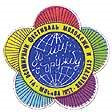This article has multiple issues. Please help improve it or discuss these issues on the talk page . (Learn how and when to remove these messages)
|
| 6th World Festival of Youth and Students | |
|---|---|
 | |
| Host country | |
| Dates | 28 July - 5 August 1957 |
| Motto | For Peace and Friendship |
| Cities | Moscow |
| Participants | 34,000 people from 130 countries |
| Follows | 5th World Festival of Youth and Students |
| Precedes | 7th World Festival of Youth and Students |

The 6th World Festival of Youth and Students was held from 28 July to 5 August 1957 in Moscow, capital city of the then Union of Soviet Socialist Republics. The festival attracted 34,000 people from 130 countries. This became possible after the political changes initiated by Nikita Khrushchev. It was the first World Festival of Youth and Students held in the Soviet Union.
The Khrushchev reforms, known as Khrushchev Thaw, resulted in some changes in the Soviet Union. Foreigners could come for a visit, and people were allowed to meet foreigners, albeit only in groups under supervision. Soviet foreign language students acted as interpreters.